Introduction
University of Franche-Comté, also known as Franche-Comté University in Chinese, is located in the Franche-Comté region in eastern France. It is a comprehensive public university with a long history.
Overview
Student and faculty scale: more than 30,000 students and about 1,200 faculty.
Subject settings: covering literature, language, law, economics, management, science, technology, medicine, sports and many other disciplines, providing students with a wide range of professional choices.
History
The school was founded in 1423 and is one of the oldest universities in France. Its history can be traced back to the Middle Ages. It has undergone many changes and developments and gradually formed its current scale and discipline system.
Establishment time
1423.
School strength
Teaching quality: focus on improving teaching quality, adopt a variety of teaching methods and means, and cultivate students' innovative thinking and practical ability. The school's faculty is of high quality, and many teachers have rich teaching and scientific research experience in their respective fields, and can provide students with high-quality education and teaching services.
Research level: With strong research strength, the university has carried out in-depth research in multiple disciplines and achieved a series of important scientific research results. The university has multiple scientific research institutions and laboratories, providing a good platform and conditions for the scientific research activities of teachers and students. For example, research in the fields of materials science, life science, mathematics, physics and other disciplines has a certain influence in France and even internationally.
Nature of the institution
Public university.
Educational philosophy
Emphasis on academic freedom and innovative spirit, encourage students and teachers to explore and try new methods and ideas in academic research and teaching, and cultivate students' independent thinking and innovation abilities.
Focus on interdisciplinary and integrated disciplines, promote exchanges and cooperation between different disciplines, and cultivate talents with interdisciplinary vision and comprehensive qualities to better adapt to the needs of social development for diversified talents.
Adhere to the combination of education and social needs, adjust and optimize the professional settings and course content according to the needs of social and economic development, so that the knowledge and skills learned by students can be closely integrated with actual work and improve students' employment competitiveness.
Key laboratories and disciplines
Key laboratories:
Materials Physics and Chemistry Laboratory, focusing on the research and development of new materials and performance research, has achieved remarkable results in the relationship between the microstructure and macroscopic performance of materials, and has provided important theoretical and technical support for the development of materials science.
Molecular and Cell Biology Laboratory, dedicated to basic research in the field of life sciences, has carried out in-depth research in cell signal transduction, gene expression regulation, protein structure and function, and has made important contributions to the development of life sciences.
Key disciplines:
Mathematics: It has a profound academic accumulation and excellent teaching and research team in the fields of algebra, analysis, probability theory, etc. Its research results have a certain influence in the international mathematics community and provide important mathematical tools and theoretical foundations for the development of related disciplines.
Physics: It has strong research strength in condensed matter physics, optics, nuclear physics, etc., has advanced experimental equipment and scientific research platforms, has undertaken a number of national and international cooperative scientific research projects, has achieved a series of important scientific research results, and has made positive contributions to the development of physics.
Law: As one of the traditional advantageous disciplines of the school, the law major enjoys a high reputation in France. Its teaching and research levels in public law, private law, international law and other professional directions are in the leading position in France. It has trained a large number of outstanding legal professionals and made important contributions to the construction of the rule of law and social development in France.
Department
The school has several departments, including the Department of Literature, Languages and Humanities, the Department of Law, Economics and Management, the Department of Science, Technology and Health, etc. Each department contains multiple colleges and majors, covering many subject areas, providing students with comprehensive subject education and professional training.
Ranking
In the 2025 QS World University Rankings, it ranks 711-720.
In the 2024 THE Times World University Rankings, it is in the 1201-1400 range.
Expenses
As a public university, undergraduate and master's degrees generally only require a small registration fee, which ranges from a few hundred euros to more than a thousand euros. The specific fees vary depending on the major and course. In addition, students need to bear their own living expenses. The living expenses in Besançon are relatively low, about 6,000-8,000 euros per year, including accommodation, food, transportation and other expenses.
Campus
Campus location: The main campus is located in Besançon, which is the capital of the Franche-Comté region. It has a long history, profound cultural heritage, and a beautiful campus environment, providing students with a good learning and living atmosphere.
Teaching facilities: The campus is equipped with modern teaching facilities, such as laboratories, libraries, computer centers, etc., providing students with good learning and research conditions. The school's library has a rich collection of books, covering books and journals in multiple disciplines, providing students with a broad knowledge resource. In addition, the school also provides students with a variety of sports facilities and cultural activity venues to enrich students' extracurricular life.
-

University of Angers
-
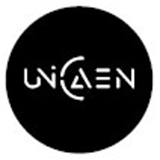
University of Caen Normandy
-

University of Bordeaux
-
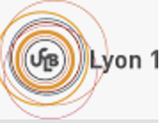
Claude Bernard University Lyon 1
-
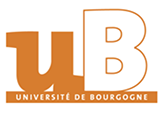
University of Burgundy
-

CY Cergy Paris University
-
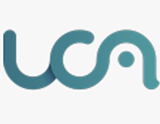
Clermont Auvergne University
-
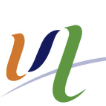
University of Artois
-
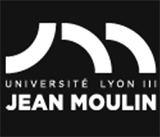
Jean Moulin University Lyon 3
-

University of Franche-Comté
-

Mesoamerican University
-

Istmo University
-

Mariano Galvez University of Guatemala
-

Regional University of Guatemala
-

Galileo University
-

Francisco Marroquín University
-

Rafael Landívar University
-

University of the Valley of Guatemala
-

University of San Carlos of Guatemala
-

Technological Institute of Tlaxcala Plateau
-

Golfo University
-

Technological University of South Sonora
-

Technological University of Huejotzingo
-

Tizimín Institute of Technology
-

Chilpancingo Institute of Technology
